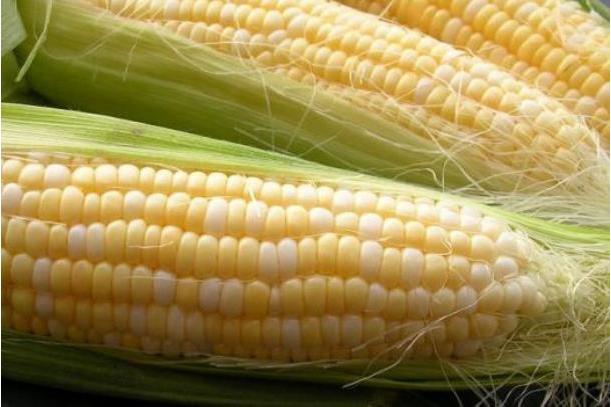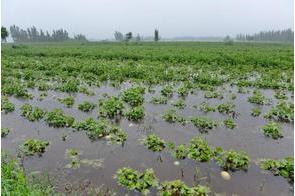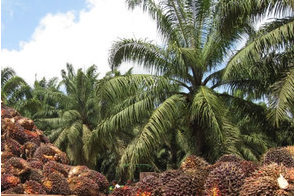Africa makes progress on reducing food losses – new SDG report

Summary
Post-harvest losses in sub-Saharan Africa are estimated at about $4 billion per year.
A new progress report assessing global action to reduce food losses and food waste has been released today by a coalition of policymakers from various countries, executives from international organizations, farmer groups and civil society. Known as Champions 12.3, the group is mobilizing action toward achieving Sustainable Development Goal Target 12.3 by 2030. The new report is the coalition's first annual report that assesses the world’s progress toward Target 12.3.
Goal 12 of the 2030 Agenda for Sustainable Development aims to promote responsible consumption and production patterns. Target 12.3 aims to halve per capita global food waste at the retail and consumer levels and reduce food losses along production and supply chains, including post-harvest losses, by 2030.
The report, SDG Target 12.3 on Food Loss and Waste: 2016 Progress Report, has been released one year since the SDGs were adopted. It says one-third of all food produced is never eaten by people. According to the report, food loss and waste is responsible for $940 billion in economic losses and 8 percent of greenhouse gas emissions annually. In sub-Saharan Africa, post-harvest losses are estimated at about $4 billion per year. The food currently lost in Africa could feed 300 million people.
According to the report, one notable step by Africa in the direction of achieving SDG Target 12.3 is the Malabo Declaration, a set of agriculture goals aimed at achieving shared prosperity and improved livelihoods. Issued by the 54 member states of the African Union in 2014, the Malabo Declaration calls African countries to “halve the current levels of post-harvest losses by the year 2025.”
“The report could not have come at a more opportune time as we in Sub-Saharan Africa seek to find sustainable ways and mechanisms for our food and nutrition security," said Lindiwe Majele Sibanda, CEO and Head of Mission, Food, Agriculture and Natural Resources Policy Analysis Network (FANRPAN). "Curbing food loss and waste, including hunger and under nutrition in Africa, calls for simultaneous actions and players. We must work with the communities of our smallholder farmers, especially women; encourage multi-sectoral approaches to developing agricultural programmes that deliver positive nutrition and economic outcomes; and be accountable to the targets we set for achieving zero hunger by 2025."
Other notable steps taken in Africa are the recent launch of YieldWise by The Rockefeller Foundation. YieldWise is a $130 million initiative that is tackling hotspots in food loss and waste generation in areas such as fruits, vegetables and staple crops in Kenya, Nigeria and Tanzania and other parts of the world. Another initiative is the Regional Capacity-building Workshops on food waste recently launched by the Nairobi-based UNEP. The global initiative is focused on data gathering, policy formulation, and concrete best practices for public and private sector managers.
Kanayo F. Nwanze, President, International Fund for Agricultural Development (IFAD), said, "Right now, many farmers are selling their produce as quickly as possible – even directly from the field - to minimize loss. But if they have the knowledge and equipment to avoid losses, they can store their crops until prices are higher and even start processing them to add value.”
African or Africa-based Champions include the African Union’s Commissioner for Rural Economy and Agriculture, Rhoda Peace Tumusiime; South Africa’s Minister of Agriculture, Forestry and Fisheries, Senzeni Zokwana; World Farmers’ Organization President, Evelyn Nguleka; United Nations Environment Programme (UNEP) Executive Director, Erik Solheim; President of IFAD, Nwanze; and FANRPAN CEO, Sibanda.
Given the magnitude of food losses and waste globally, the report recommends nations, cities and businesses in the food supply chain to move quickly to set reduction targets, measure progress and take action to reduce food losses.
"It is time to act and this report gives guidelines for all the actors on how to be part of the solution for food loss and waste,” added Sibanda.
The World Resources Institute, a Washington DC-based global research organization, and the government of the Netherlands serve as co-secretariats of Champions 12.3.
Related
-
Report finds sustainable agriculture driving down use of pesticides
The use of pesticides and other chemical agents has dropped by between 50 and 90% over the past fifty years.
-
The challenges and management of flooding in Africa’s agriculture
Knowing what to do before, during and after a flood can enable farmers to make better decisions.
-
IFAD, Sierra Leone sign agreement for $72.6 million agriculture project
The project will facilitate the government’s crop diversification and rural poverty reduction agenda.







